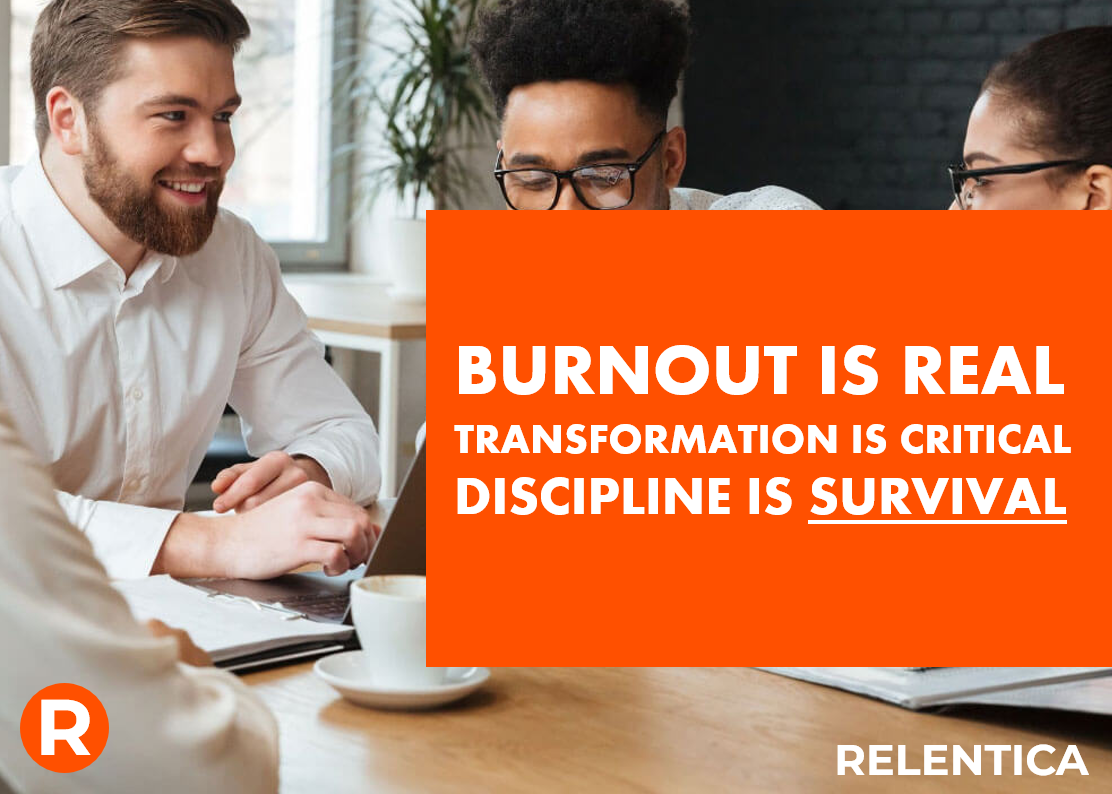
The Reality of Burnout
Without doubt, much of today’s workforce is burnt out. Not all, but many are running on empty. Demands are escalating: businesses are driving for higher productivity to keep revenue moving in line with inflation, while margins are squeezed even harder by wage growth and overhead costs that outpace headline inflation. These pressures cascade through every layer of an organisation, yet the workforce often doesn’t see – or doesn’t care about – the financial rationale behind cost controls. What employees want is not spreadsheets and margin stories, but rewarding work in stable, reliable organisations. That’s a senior leadership problem.
Burnout is the context in which we are asking people to change. And that makes leadership harder, not easier. Transformation is critical for survival, but if not delivered with discipline and empathy, it risks deepening disengagement.
Why Change Still Matters
Change initiatives are not optional; they are essential for survival. But only the right change matters. Transformation for vanity or half-baked strategies crushes morale. Today’s leaders must identify which changes truly sustain the business model, balancing them with the BAU that keeps operations running. Employees are effectively doing more than one job – maintaining operations while driving change – and that pressure is a key reason why burnout has become so widespread.
Layer on top of this the rise of AI. Employees are still adjusting to its role, while AI itself moves at extraordinary speed. The risk is overwhelm: technology that accelerates faster than humans can adapt, creating cynicism and resistance. The lesson is clear – the pace of transformation must be matched by the capacity of people to absorb it. Without this balance, change fails.
Leadership, Stability, and Delivery Discipline
How do we make people happy and effective when engagement is low? Through leadership that is both personal and personable. Clear vision, clarity of communication, and a sense of community are not luxuries – they are the glue that binds teams together, especially across hybrid and global workforces. But inspiration alone isn’t enough. When people are drained, discipline is what sustains momentum.
This is where leaders must shift gears from broad ambition to precise execution:
- Set priorities ruthlessly – remove the noise and focus only on what moves the dial.
- Keep KPIs meaningful – measure what matters for customers and outcomes, not vanity metrics.
Delivery discipline protects energy by eliminating waste and ambiguity. It ensures that progress is made without overwhelming people further. Discipline isn’t bureaucracy – it’s the structure that shields people from chaos.
Protecting Leaders and Rebuilding Engagement
Leaders themselves need protection from burnout too. Structure, process, and consistency create resilience, but so does ensuring that work is purposeful and connected to outcomes. Micro-wins – small, visible successes that show effort creates results – are the most effective antidote to disengagement. When people see that their work matters, trust begins to rebuild.
This is not about slowing down. It’s about pacing change intelligently, embedding it into the organisation in a way that sticks. Burnout doesn’t disappear overnight, but stability, consistency, and disciplined delivery provide a foundation for engagement to recover.
Call to Action
The modern workforce is stretched. Burnout is real. But change cannot wait. Leaders must accept the reality of low engagement and still deliver, not by pushing harder, but by leading with clarity, consistency, and discipline. Transformation doesn’t succeed through inspiration alone – it succeeds when delivery is structured, focused, and sustainable.
At Relentica, we work with senior leaders to cut through complexity, prioritise what matters, and deliver change in a way that protects both performance and people.
In burnout, delivery discipline isn’t optional. It’s survival.









